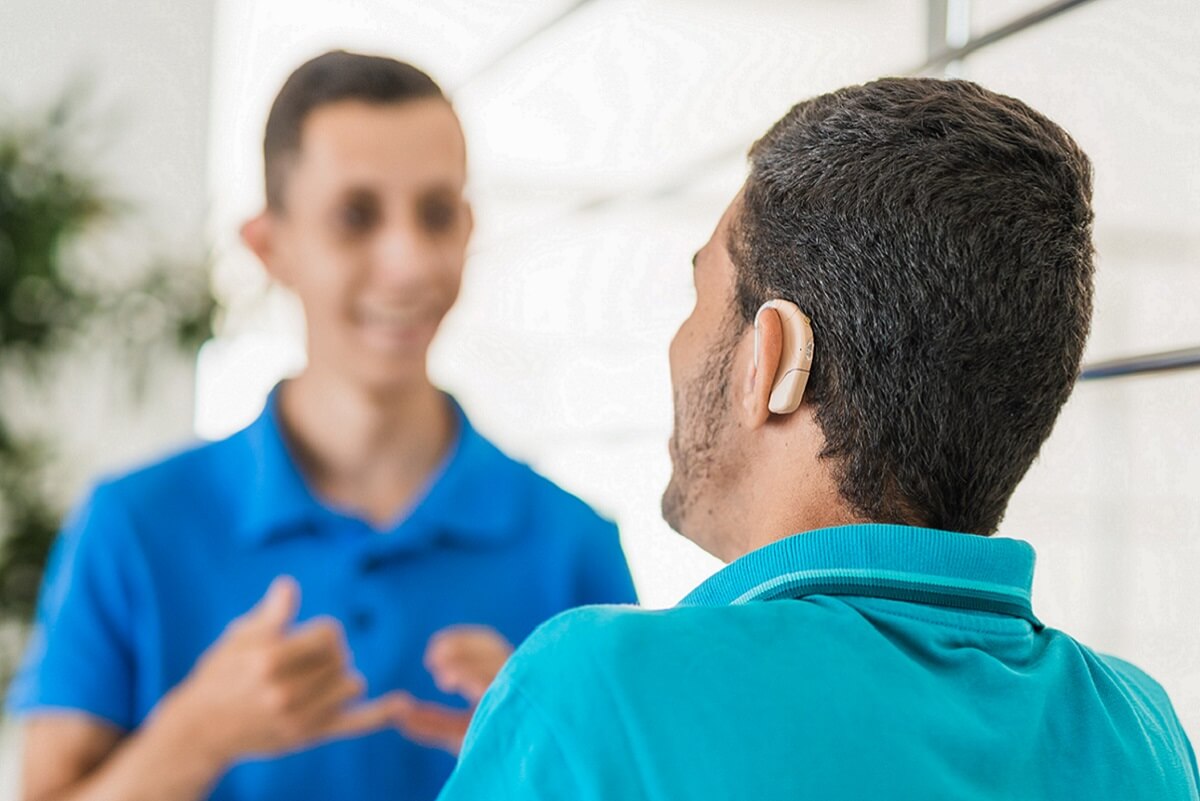Meeting the Needs of Our Deaf and Hard of Hearing Community
July 28, 2022
By: Steven Snow, Elizabeth Schniedewind, and Deidre Lattin
Categories: Community
Deaf people need healthcare providers to take a personalized approach
Health care is important to everyone and everyone should have equal access to quality health care. However, this is not always the case for Idahoans who are deaf or hard of hearing.
The National Center for Health Statistics reports that roughly 20 percent (48 million) of American adults have some degree of hearing loss. In Idaho, that is nearly 340,000 people. It is estimated that between 5,000 and 13,000 Idahoans use sign language to communicate. Many of them have experienced major barriers in getting quality healthcare.
Deaf users of American Sign Language, through cultural and language barriers, are at high risk for being in poor health and not having access to medical care. These barriers include incorrect assessment and not understanding the diagnosis or treatment. This leads to limited access to treatment and medication, insufficient follow-up, and overall poor outcomes.
Many reasons cause to these disparities. Although the Americans with Disabilities Act mandates the delivery of effective health information, many healthcare settings do not provide licensed and qualified interpreters. As a result, some members of the deaf community visit their doctors less often due to limited access to direct communication.
A 2018 study conducted by Idaho State University found that non-deaf people were able to get new patient appointments at a doctors’ or dentists’ office 81 percent of the time. Deaf individuals were given an appointment only 46 percent of the time.
Deaf people need healthcare providers to take a personalized approach to interaction and care. Providers must ask the deaf person what kind of accommodation works best for them. The best communication and access to care occurs when there is a partnership between the patient and staff.
To better identify the hurdles our deaf community faces and improve access to equitable and quality healthcare, Saint Alphonsus started a Deaf and Hard of Hearing Advisory Council. Meetings led to a partnership between the hospital and deaf community to improve services within the healthcare system. The goal is to promote better access to healthcare, effective communication, accurate assessments, diagnoses and treatments, and improved patient/provider satisfaction and trust.
Through this collaboration, Saint Alphonsus has implemented many practices:
- The addition of Video Remote Interpreting (VRI) provides 24/7 access to trained, medical Interpretive Services for immediate patient concerns, until a bedside interpreter becomes available.
- Upon admission, patients are identified and provided a Deaf and Hard of Hearing Kit. This kit educates staff on how to interact with deaf clients and provides tools and resources to promote communication and provide care to meet patient needs.
- Annual training ensures staff are aware of cultural and language differences of deaf patients and family members and how to access hospital resources to ensure effective communication and equitable care are provided.
- Saint Alphonsus offers Childbirth Preparation, Breastfeeding Education, and Newborn Care and Parenting Classes to deaf community members, taught by Deaf educators in ASL.
Saint Alphonsus is committed to leading the medical community to improve access to equitable healthcare to this underserved and vulnerable population.
Steven Snow is Executive Director of the Idaho Council for the Deaf and Hard of Hearing, Elizabeth Schniedewind is a Clinical Associate Professor at Idaho State University – Meridian, and Deidre Lattin, BSN is a nurse and educator in the Saint Alphonsus Family Center
